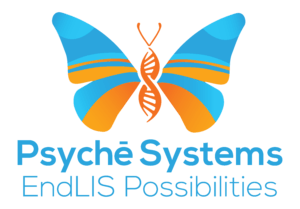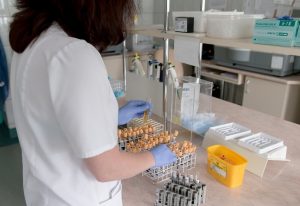It was known as the “royal disease” when it spread among Queen Victoria’s family. The youngest Romanov famously suffered from it. Now, hemophilia impacts thousands of people across the US. Though the disease is still quite rare and there’s still no cure for it, today’s hemophilia patients have a lot of advantages over the royals of the past. For one thing, they know better than to treat a bleeding disorder with aspirin. For another thing, thanks to technological changes like molecular genetics software, treatment options have evolved.
One of those treatments is gene therapy, which has become increasingly available as an option for hemophilia. In fact, gene therapy for hemophilia has made several leaps forward in the past several months. This fact is especially surprising, given the fact that COVID-19 has changed the focus of the entire medical world.
However, gene therapy has shown promise for patients in early trials. If you run a genetics lab and use molecular genetics software, here’s what you need to know about the latest in hemophilia gene therapy treatment.
Gene Therapy and Hemophilia
Hemophilia, as you may already know, is a disorder that prevents the blood from clotting properly. As a result, when a hemophiliac person is injured, they may bleed more profusely than the average individual. Hemophiliacs have a higher risk of internal bleeding, and this disorder can cause severe pain. Hemophilia impacts males more often than females, and girls who do inherit hemophilia tend to have less severe cases than boys.
So far, treatment for hemophilia has consisted mostly of pain management and clot-promoting drugs. Some recent trials, however, have focused on gene therapy. This therapy uses either CRISPR technology or an altered virus to insert a copy of the missing blood-clotting factor into the hemophiliac patient.
Your Molecular Genetics Software
The latest gene therapy updates could have an impact on your molecular genetics software usage. As you keep an eye on the latest news to keep up with the times, look for these changes and implications.
Genetic Counseling May Evolve
Molecular genetics software users should note that in light of hemophiliac gene therapy options, genetic counseling may also evolve. For example, depending on how effective gene therapy becomes for hemophilia, couples who carry the hemophilia gene may be able to conceive safely and rest assured that their child can live without bleeding episodes and other complications.
This fact may drive up the demand for genetic counseling in general, which may in turn drive up the demand for genetic testing. If you use molecular genetics software on a regular basis, then you already know that medical possibilities grow every day. Now, you can add hemophilia treatment news to your list of topics to keep an eye on.
If the demand for genetic testing does increase, then you’ll want to make sure that your genetics software can rise to the occasion. Your software will need to support several unique workflows, keep your processes organized, and offer quick but effective communication between your lab and those who order tests.
Gene Therapy Could Save Money
Next, keep in mind that gene therapy could save a lot of money as time passes. So far, hemophilia gene therapies have saved plenty of money compared to more traditional hemophilia therapies. What happens to the money that gets saved? Could these changes result in more research dollars? What about more money for diagnostics? It’s hard to say for sure, but it is something to keep your eye on as new research emerges.
Pharmacogenomics Will Stay Important
As gene therapy for hemophilia gains more and more of a foothold, you may notice a renewed focus on pharmacogenomics testing. Does your molecular genetics software have what it takes to perform those tests? With more precise knowledge available, doctors will want to know how their hemophiliac patients will respond to gene therapy, clot-promoting drugs, and other treatments. Pharmacogenomics may provide a lot of valuable insights so that doctors can tailor treatments to each individual patient.
Molecular Genetics Software Should Update and Evolve
Whether you’re talking about hemophilia treatments, DNA tests, diagnostics, or any other molecular genetics topic, new information emerges every day. The changes are often exciting, but they also mean that your software must evolve. When looking for laboratory software, consider factors like seamless upgrades. Smooth, regular changes can help you make sure that your lab keeps up with the times.
The Beginning Stages of Change
Again, though, hemophilia gene therapies are in some of the earliest stages of research. Researchers have conducted human trials, but those trials have remained small. These researchers need more time and trials to replicate their promising results. This means that while your molecular genetics software should keep up with the latest changes in the medical world, it should also put your current needs first.
What do you need from your software right now? Seamless instrument integration? Better workflow support? Whatever your needs, you deserve a software that can meet you where you stand.
Molecular Genetics Software from Psyche
The Psychē Systems team is staying current with the most recent hemophilia and gene therapy news. We keep up with any topic that may impact our clients and their laboratories. At the same time, we make sure that our products meet your most current and pressing needs.
The molecular software from Psychē is sleek, startup-friendly, and can support multiple tests. Laboratory owners choose Psychē for DNA sequencing, karyotyping, and other molecular genetics tests.
Contact Psychē Systems with Your Genetics Software Questions
Want to learn more about your options from Psychē Systems? We’d love to help. Contact us now with your questions. If you’re ready to build and customize your laboratory software, you can use our LIS-building tool to get everything that you need and nothing that you don’t. Let us help you with an affordable but powerful laboratory software system. No matter what happens with the future of diagnostics and gene therapy, you can keep your lab running as smoothly as possible.


